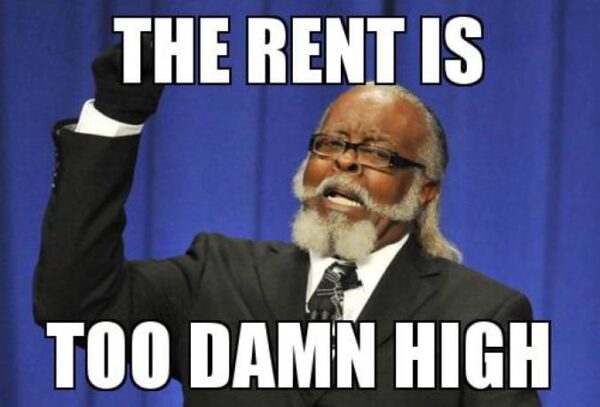The solution to the mouth burn from eating chili peppers is surprisingly similar to the solution to the recent rise in prices.
Everyone is talking about high prices. I’m not sure everyone understands what’s going on with them, or how much to be concerned with them, but prices of everyday items from food to gasoline are now even more in the popular conversation than normal.
In short, we’ve all kind of become like Jimmy McMillan, the Rent Is Too Damn High guy.

But there’s been an interesting countervailing argument about high prices, not saying that they are good or bad, but just that this might be more normal that we might think. And also, that there is an inevitable solution.
It turns out, that it has a lot to do with chili peppers.

Table of Contents
Eating chilies
When I was younger, I was very impressed by Andrew Weil.
Yes, he’s the Santa Claus-looking “celebrity doctor” famous for health books such as “Eight Weeks To Optimum Health”.

But back in his early days, he was a radical, way more Timothy Leary than Jack LaLanne.
His first book, The Natural Mind, was a treatise on the benefits of alternative states of consciousness (including, but not limited to, drug use), which was mind-blowing to a teenager who knew of only two possibilities: Just Say No or being a stoner staring at the wall.
But his interest was in consciousness and not drugs, and in his next book, The Marriage of the Sun and Moon, he continued his work by looking at different and nonstandard altered states, such a yogic work, vomiting (seriously), and…eating chilies.
The solution to eating chilies
In a chapter for The Marriage of the Sun and Moon, he writes:
“Chili eating in Mexico is a national pastime and constant source of wonder to tender-mouthed visitors from the North. As a rich source of Vitamin C, richer than citrus, chili is a most important addition to the traditional peasant diet of tortillas and beans. But even a rugged Texan used to the hot chili con carne of the border regions may be stopped in his tracks by some of the peppers casually munched down by Mexican children as if they were gumdrops.”

Weil mentions that he is a huge fan:
“To me, chilies are an inviting challenge, and I strive to master the art of eating them like a true son of the Americas.”
The article goes on to describe the differences in physiological and psychological response from “chili lovers” and “chili haters”, but to me, the part that always stuck with me, more than 20 years after I first read it, was the “solution” to the mouth burn from chilies.
“A person uninitiated into the mysteries of chili eating who bites down on a really peppy capsicum pod may exhibit all the symptoms of furious rabies. It is difficult to convey to such a sufferer that truth that relief comes only of eating more chilies, but that is the case. Water makes the agony worse. Bread may be slightly helpful. But the only real help comes of plunging in and developing tolerance to the effect.”
The solution to eating chilies, it seems, is eating more chilies.
The solution to high prices
What does this have to do with the rise in prices on nearly everything?
Quite simply: the solution is the same.
The standard ebb and flow of supply and demand states that when prices rise, demand will likely wane. That’s the whole point of the recent interest rate increases; to make borrowing and less affordable, so people will do less of it.
But then, as demand wanes, then so it follows that the supply will likely rise, at least eventually.
And when the supply rises, bingo, prices will fall.
Therefore, the solution to high prices is…more high prices.
Point being, that this is a cycle we’ve seen before, and will continue again. And while it sucks for many people, the bigger issue, such as the artificial lowering of wages such that they are unable to keep up with the true cost of living, should be the real target of your ire, not how prices happen to be going up due to regular market forces.
You can call this a spicy take.


